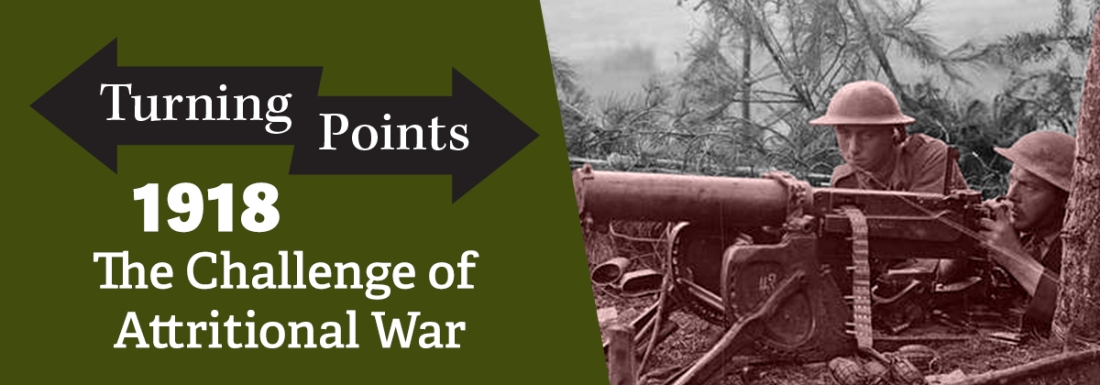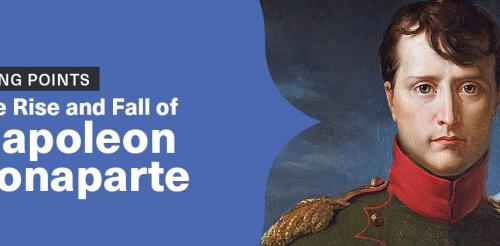Fearsome new weaponry and the adoption of trench warfare made World War I a horrific, slow-moving slog of attrition. By the time it ended in late 1918, four years of fighting had claimed the lives of more than 16 million soldiers and civilians.
In the latest installment of the Library’s Turning Points series in partnership with the U.S. Army Command and General Staff College, military historian Shawn Faulkner examines the uniqueness of this first truly global conflict. The turning points of many previous attritional wars had arrived far earlier as one side gained a preponderance of power over the other. But until its final months, the victor of the Great War remained very much in doubt.
Faulkner is a professor of military history at the Army Command and General Staff College. He served for 23 years in the Army as an armor officer, commanding a tank company during Operation Desert Storm before retiring as a lieutenant colonel. He also taught American history at the U.S. Military Academy at West Point.
Faulkner is the author of three books including What Price Glory, Captain Flagg? Leader Competency in the American Expeditionary Forces, which examines how the U.S. Army trained and developed company-level leaders during WWI. His most recent work, Pershing's Crusaders: The American Soldier in World War I, earned the Richard W. Leopold Prize from the Organization of American Historians as the best book on foreign policy, military affairs, historical activities of the federal government, documentary histories, or biography written by a U.S. government historian or federal contract historian.

